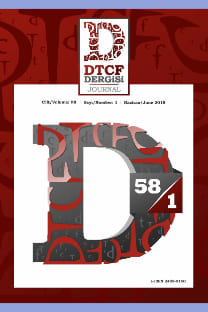ANNIE ERNAUX'NUN LES ANNÉES (YILLAR) ADLI ESERİNDE TOPLUM, BELLEK VE YAZIN
Annie Ernaux'nun Les Années (Yıllar) adlı eseri yayımlandığı 2008 yılında Fransız yayın dünyasında büyük bir beğeniyle karşılandı ve bu kitap konusunda, her ne kadar klâsik anlamda bir roman olarak sınıandırılmasa da, “roman total” (tam/bütünleyici roman) nitelemesi yapıldı. Annie Ernaux kanserle mücadele ederken yazdığı, yaşamının son otuz yılı süresince arayışına çıktığı yazma biçimini sonunda yakalayabilmiş; kendi yaşamından yola çıkarak savaş sonrası Fransız toplumu ve kültürüne ilişkin her türden olayı kayıt altına aldığı bu kitabını, bildiği ve tanık olduğu her şeyi ölmeden geride kalanlara iletme kaygısıyla yazmış gibi görünüyor. Kişisel konuları ele aldığı yazılarının arka planında bile hep toplumsal yaşam ve toplumsal yaşamı oluşturan kültürel, siyasi, tarihsel olaylara yer veren Annie Ernaux, bu kitabını tam anlamıyla bir “toplumsal bellek” yazını olarak kurgulamıştır; çünkü bireysel kimliğinin oluşumunda toplumsal olayları nasıl yorumlayıp, nasıl anımsadığımızın ne denli önemli olduğunun ayrımındadır. Yirminci yüzyılın ikinci yarısından başlayarak insan psikolojisinin toplumsal bellekle yakından ilişkili olduğunu düşünen düşünürler artmış, bunun yansımalarına yazarlar eserlerinde yer vermeye başlamışlardır. Bir beceri olarak toplumsal bellek kimi kılgıları canlı tutmaya çalışırken, modern yaşamın bunu sekteye uğrattığı tartışma götürmez bir gerçektir. Bu bağlamda Annie Ernaux, 1940'lı yıllardan başlayarak 2008 yılına gelinceye değin Fransız toplumunun değişik kesimlerinin yaşantılarını kayda almış ve yazar olarak bir etnolog gibi çalışarak, yazınını bireysel yaşanmışlıktan toplumsal bellek boyutuna taşıyabilmiştir. Makalemizde yazarın kaybolmaya yüz tutmuş tüm kültürel ve toplumsal imgeleri ele aldığı ve modern yaşamın unutturma çabalarıyla başa çıkmaya çalıştığı “müze kitabı” bellek yazını çerçevesinde irdelenmeye çalışılacaktır.
SOCIETY, MEMORY AND, LITTERATURE IN LES ANNÉES (THE YEARS) BY ANNIE ERNAUX
Les Années (The Years) of Annie Ernaux has been highly appreciated in the French literary eld since its rst publication in 2008. Although this work has not been classied as a classic novel by critics, it can be qualied as a “roman total” (total/integral novel). Ernaux wrote this novel when she was ghting against cancer. With this novel, she nally managed to catch the narration style she was longing for in the last three decades. Departing from her own life, this novel presents the records of the post-war French society and culture. Ernaux seems very much concerned with transferring whatever she knows and she witnessed to those who will remain in this world. Even in those writings where she deals with personal matters, there are always issues related to social life as well as cultural, political and historical events on the background. Ernaux has designed this novel as a “social memory” because she is aware that the way we interpret and remember social events is crucial in the formation of individual identities. From the second half of the twentieth century, there has been an increase in the number of scholars who claimed that human psychology is closely linked with social memory, and the reections of this thinking can be found in the writings. While social memory tries to keep some practices alive, it is an undebatable truth that this has been interrupted by modern life. In this context, from the 1940's to 2008, Ernaux has successfully recorded the lives of different segments of the French society and, by working like an ethnologist, she managed to carry her literature from the dimension of individual experiences to another one, that is, social memory. Within the framework of the notion of memory writing, this article seeks to examine this “museum novel”, where Ernaux tries to cope with the detraction efforts of modern life by scrutinizing all the cultural and social images facing extinction.
___
- Baudelot, Christian. “Book Review: Les Années by Annie Ernaux.” Annales. Histoire, Sciences Sociales, 65ème Année, No. 2 (mars-avril 2010): 527-531. Web. 10 Ocak 2020.
- Bourdieu, Pierre. La distinction: critique sociale du jugement. Editions de Minuit, 1979.
- Bourdieu, Pierre. Langage et pouvoir symbolique. Editions Fayard, 2001.
- Bourdieu, Pierre. “Le Marché des biens symboliques.” L'Année sociologique (1940/1948-) Troisième série, Vol. 22. Presses Universitaires de France. 1971: 49-126. Web. 30 Nisan 2020.
- Bourdieu, Pierre. “L'école conservatrice: Les inégalités devant l'école et devant la culture.” Revue Française de Sociologie Vol. 7, No. 3, “Les Changements en France”. (Jul. - Sep.) 1966 : 325-347. Web. 30 Nisan 2020.
- Connerton, Paul. How Modernity Forgets. Cambridge University Press, 2010.
- Coser, Lewis A. “Introduction.” Maurice Halbwachs: On Collective Memory. London and Chicago: The Chicago Press, 1992. 1-34.
- Ernaux, Annie. Les Années. Gallimard, 2008.
- Ernaux, Annie. Bir Adam. Çev. Yaşar Avunç. İstanbul: Cem Yayınevi, 1994.
- Ernaux, Annie. Babam. Çev. Siren İdemen. İstanbul: İletişim Yayınları, 2001.
- Ernaux, Annie. “Bourdieu: le chagrin.” Le Monde. 5 février 2002. Web. 30 Nisan 2020.
- Ernaux, Annie. L’écriture comme un couteau (Entretien avec Frédéric-Yves Jeannet). Editions Stock, 2003.
- Ernaux, Annie. “Je voulais venger ma race.” (Entretien avec Grégoire Leménager). Bibliobs 9 Aralık 2011. Web. 30 Nisan 2020.
- Halbwachs, Maurice. On Collective Memory. Trans. Lewis A. Coster. Chicago and London: The University of Chicago Press, 1992.
- Jourdain, Anne ve Sidonie Naulin. Pierre Bourdieu’nün Kuramı ve Sosyolojik Kullanımları. Çev. Öykü Elitez. İstanbul: İletişim Yayınları, 2016.
- Lejeune, Philippe. Le pacte autobiographique. Editions du Seuil, 1996.
- McIlvanney, Siobhan. “Annie Ernaux: Un écrivain dans la tradition du réalisme.” Revue d’histoire littéraire de la France 2 (Mars-Avril 1998): 247-266.
- Prévost, Claude ve Jean-Claude Lebrun. Nouveaux territoires romanesques. Paris: Messidor / Editions Sociales, 1990.
- Proust, Marcel. À la Recherche du temps perdu, tome III, Le Temps retrouvé. Paris: Gallimard (Éditions de la Pléiade) 1988.
- Ricœur, Paul. Hafıza, Tarih, Unutuş. Çev. M. Emin Özcan. İstanbul: Metis Yayınları, 2012.
